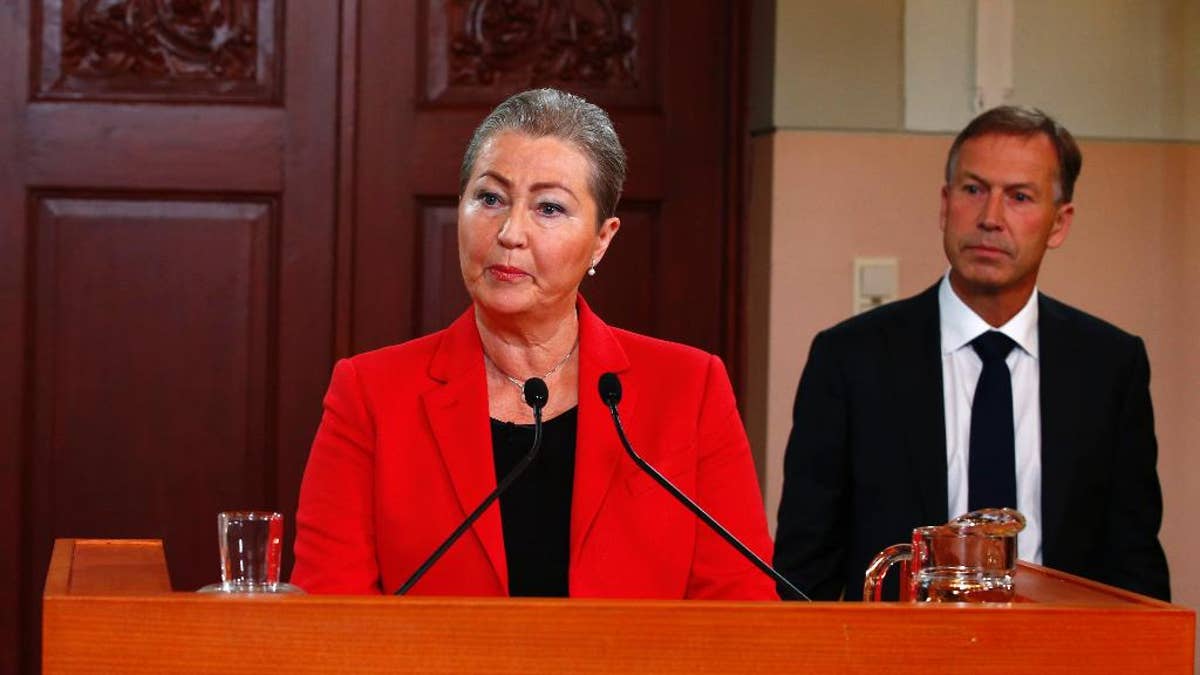
Kaci Kullmann Five, the new head of the Norwegian Nobel Peace Prize Committee, announces the winner of 2015 Nobel peace prize during a press conference in Oslo, Norway, Friday Oct. 9, 2015. The Norwegian Nobel Committee announced Friday that the 2015 Nobel Peace Prize was awarded to the Tunisian National Dialogue Quartet. (The Associated Press)
The Norwegian Nobel Committee has awarded the Nobel Peace Prize for 2015 to the quartet of civil society organizations working to keep the democratic direction of Tunisia.
It may have a positive local impact. It was not what most observers had predicted as the committee previously has given awards with a more global ambition.
The Arab Spring began in high hopes and has now resulted in a situation where more than half of all Arab countries are involved in serious armed conflicts, either on their territory or by intervening in the others.
It is not easy to find hope.
The Nobel committee has chose to highlight the work of civil society in mediating in a national crisis. It may be seen as a ray of hope in an otherwise turbulent region.
The events in Tunisia in late 2010 and early 2011 unleashed the Arab Spring. In Tunisia the developments became less violent than in the others. Still, several hundred people have died.
The national dialogue has played an important role in this regard. In 2015 there have been worrying signs in this country, with attacks on tourists and on a national museum. The prize may help those civil society groups that work to maintain a steady course towards further democratization of the country.
It is a surprising choice as the Nobel committee has had a tradition of highlighting work on nuclear disarmament on the decennials of the use of nuclear weapons in 1945. Thus in 2005, 1995 and 1985 the prize went to organizations, individuals or movements working for the reduction and elimination of nuclear weapons. There were similar nominations and worthy candidates this year, notably the negotiators behind the Iran nuclear deal or the international campaign to abolish nuclear weapons. However, there is now a new composition in the Committee, which is elected by the Norwegian parliament, and thus it has moved in a more conservative direction. This choice may reflect an ambition of selecting less controversial laureates and turn away from candidates of a global standing.
The quartet consists of the Tunisian General Labor Union, the Tunisian Confederation of Industry, Trade and Handicrafts, the Tunisian Human Rights League and the Tunisian Order of Lawyers. It was formed in 2013, two years into the revolution, which the Tunisians themselves prefer to call the Dignity Revolution. At that time, several prominent human rights advocates had been assassinated and tensions were on the rise. With its broad base it is likely that the quartet has contributed to reduce violence and assist in the promotion of democracy.
In 2011 the prize was given to a non-violent activists from Yemen, Ms. Tawakkol Karman, in 2013 to the organization that was involved in chemical weapons disarmament in Syria, OPCW, so this is the third time that it highlights positive developments in the otherwise depressive currents in the Middle East after the first promising changes of the Arab Spring. The Norwegian Committee hopes that it will serve as a good example. It is difficult not to agree with that, but to change the dynamics in this region will require more concerted efforts than this.
Peter Wallensteen is a senior peace researcher at the University of Notre Dame's Kroc Institute for International Peace Studies, now part of Notre Dame's new Keough School of Global Affairs, and in the Department of Peace and Conflict Research at Sweden's Uppsala University.








































